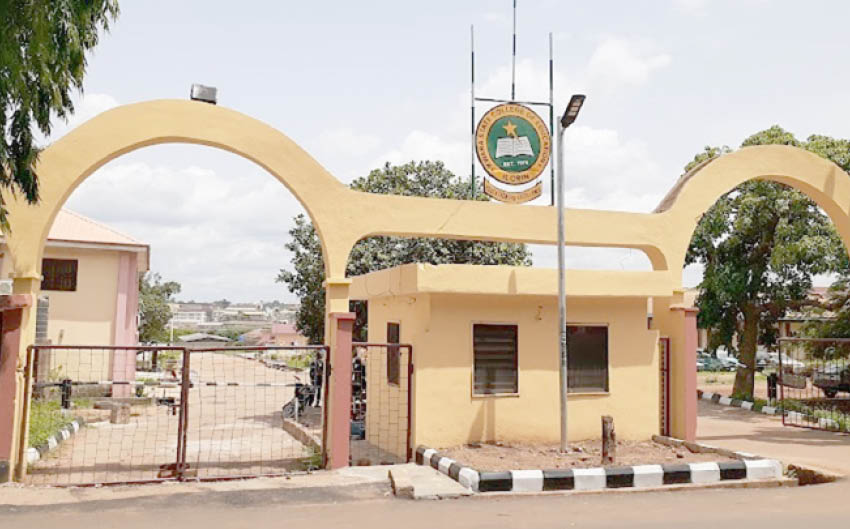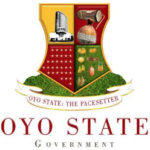It will worsen education challenges in Nigeria – Experts
Dual mandate the solution – President of SSUCOEN
The recent trend of state governments upgrading Colleges of Education to universities has continued to raise dust among stakeholders considering the vital role played by the colleges in the education sector.
Colleges of Education are tasked in the area of producing professionally trained teachers for vocational and technical secondary schools to meet the nation’s requirements for technological take-off as provided in the National Policy on Education.
However, the trend, which seems like a ploy to phase out the production of National Certificate in Education (NCE) holders spells doom for the country, as posited by some stakeholders.
The federal government phased out Teachers Education Certificate and made the minimum requirement for teaching in the country to be NCE. However, irrespective of that, the country is yet to produce the required number of professional teachers to man the affairs of primary and secondary education, which has been attributed to poor salary and welfare of teachers in the country.
Recall, the Executive Secretary of the Universal Basic Education Commission, Dr Hamid Bobboyi, said the 2018 National Personnel Audit (NPA) report on Public and Private Basic Education Schools in Nigeria revealed that the country had a shortage of 277,537 teachers at the basic level.
However, with recent events in the country such as teachers leaving in search of better offers, non-payment of salary, insecurity, among others, there is a possibility that the required number will be higher now.
With this shortage of teachers, the government still finds it right to convert its colleges that produce teachers to universities.
Some of the Colleges of Education that have been converted to universities include Sa’adatu Rimi College of Education, Kumbotso, Kano; Niger State College of Education, Minna; College of Education, Zaria; FGC, Kano; Adeyemi College of Education, Ondo State; Alvan Ikoku College of Education, Owerri, Imo State.
Others are Lagos State College of Education; Shehu Shagari College of Education, and College of Health Education, Agbor, Delta State.
The Executive Secretary of the Tertiary Education Trust Fund (TETFund), Arc. Sonny Echono, recently at an event, expressed dismay at the development and questioned the rationale behind it when existing Colleges of Education were not producing enough teachers for primary schools in the country.
He said the development was disturbing considering the important role colleges of education played in producing teachers at the basic education level for the country.
“This tendency to want to convert colleges of education to universities, frankly I see no need for it. Universities already have faculties of education. And many of the conventional universities have this already. Why don’t we produce enough for this basic level first? We can have some level of specialisation because improvements come,” he said.
“Do we want to convert all our colleges of education to universities when we are not producing enough for our primary schools?” he asked.
Also, a communiqué issued by the Senior Staff Union of Colleges of Education, Nigeria (SSUCOEN), at the end of its 38th National Delegates’ Conference (NDC), equally saw the development as a misguided and short-sighted move that wouldvhave far-reaching devastating consequences for the education sector.
The communiqué which was signed by the President, Danladi Ali Msheliza, and National Secretary, Nwenyi Leo Isioma, reads in part: “This conversion will not only lead to the erosion of the unique identity and purpose of COEs, which have historically provided high-quality teacher training but also threaten the very existence of these institutions.
“Moreover, it ignores the critical need for specialised teacher training and development, and will likely result in a watered-down, generalised education that fails to meet the specific needs of our students and educators.”
They urged the government (state and federal) to recognise “this ill-conceived decision and prioritise preserving and strengthening our COEs, rather than dismantling them under the guise of a so-called upgrade.”
Msheliza told Daly Trust via a phone interview that gone were the days when governments woke up and just came up with one policy without consideration on how it would have implications on the education of the country provided they wanted to protect the interests of some people.
He said they started with a Grade 2 teacher certificate and phased it out and made NCE the minimum qualification for teaching in the country.
“We don’t have problem with that but one thing you need to know is that you phased out the grade 2 certificate leaving NCE but graduate of NCE are being paid N15, 000 as salary or
N20,000 at most in this country and you want them to go to a remote Village to teach when they don’t know anybody there, no motivation, nothing yet you want them to teach and come up with a result for our tertiary institutions. We have told the government that once the foundation is faulty, the building collapses in no time,” he said.
While noting that they had always advocated improvement in the welfare of teachers and the steady investment in teachers education in the country, he said, “Without investment in teachers’ education in this country no matter what we do in the university, we cannot get it right.
“State governments feel that converting Colleges of Education to universities will solve our problem, in fact, it will worsen it
“They keep converting Colleges of Education to University, especially in the Southern part of the country, and they will tell you that NCE certificate is no longer fashionable and that degree certificate is the best thing to do, but they will never pay the graduates salaries that will motivate them to go and teach in primary and secondary schools.
“So, the implication of what they are doing by converting state Colleges of Education to universities or federal colleges of education’s to universities is that the way they want teachers at the primary school, junior secondary school and Senior secondary schools to all be graduates.
“Primary school teachers are paid by the local government and you want these teachers to go and teach where the local government will pay them N10,000 and N20,000 and you want them to perform magic in those local governments, it will not work, it is dead on arrival.
“It is not everybody that goes to the classroom to teach, knows the rudiments of teaching and those rudiments are not acquired in the universities because University curriculum is different from NCE curriculum for teachers.
“In NCE, before you go to become a professional teacher, when you are in NCE 1 and going to NCE 2, you have to do a whole six months teaching practice.
“Student teachers go for practical teaching in Primary School to acquire knowledge on how to teach when they eventually graduate. And everything they are taught at NCE 2 is about best teaching methods. How to prepare lesson plans, how to teach at the primary level, pre-primary levels and at the junior secondary level because that is the mandate of the NCE certificate holders. “
Msheliza further said: “What we are trying to do is to improve the foundation, which is what the government is trying to destroy, because the government doesn’t understand this and you know, usually they establish institutions and leave it for TETFund to fund. They convert some of these colleges of education and leave them there and some of them are glorified secondary schools.”
He added that if Nigeria must get the foundation right, it must start at the primary school level and that it was not by magic but from the teachers that taught at the primary level.
“Once we destroy Colleges of Education in this country, our education sector is destroyed completely. It should be worse than what we have today. And that is why we insist that the solution is dual mandate not conversion of Colleges of Education to universities,” he concluded.
Is dual mandate for COEs the solution?
In proffering a solution to the challenge, the academic union said the best way was the dual mandate and not phasing out Colleges of Education by way of replacing them with universities.
The dual mandate is to allow the Colleges of Education to concurrently run Nigeria Certificate in Education (NCE) and degree programmes, which the federal government has approved its implementation in the next session for Federal Colleges of Education.
The Minister of Education, Prof Tahir Mamman, gave the nod in a letter which was signed by the Director, Colleges of Education, Dr. U. C. Uba, saying the approval was from the recommendations of the technical committee on the implementation framework and requested that they implemented the relevant recommendations related to the agency.
It said the take-off of the concurrent running of dual mandate in Federal Colleges of Education should be from the 2024/2025 academic session.
According to the letter, Mr President, on 12th June, 2023, signed into law the Federal Colleges of Education Act No. 43 of 2023 gazetted on 24th July, 2023.The Section 9, Sub-sections 3(c) and (d) of the act mandates the Federal Colleges of Education to run the Nigeria Certificate in Education (NCE) and degree programmes concurrently.
However, the President of SSUCOEN said: “What it will do is that Colleges of Education will still be able to train teachers with the rudiment of teaching at the NCE level and as soon as they graduate from NCE, If they so wish to go and teach they can go and teach. If they wish to continue to acquire the degree, they will acquire a degree in education in the area they have graduated during their NCE.
“When they acquire their first degree in education, having acquired their NCE in any field of their choice. Then they go out there and become fully grown professional teachers.
“Doing that, we will maintain the NCE students and still have graduates in education. We are doing this because the causes that are run in Nigerian University education are not up to the one third of the NCE courses will run in College of Education because there are specialised NCE programmes.”
On challenges likely to be faced by the COEs, Msheliza said the facilities required to run degree programmes were always higher than the facilities that were required to run NCE programmes.
“Our lecturers that teach NCE holders can be a degree holders, but such a lecturer cannot teach degree students. As we are running through our mandate now, teachers need to develop their documents. That is because teachers that will teach the degree students must be holders of masters at least and PhDs. It means that we need to train and retrain the teachers on the ground for those who do not have masters and they need to go and have it and there will be a need for resources to train them,” he said.
He hinted that the challenges could not hinder them from running degree programmes because already Colleges of Education were all running one degree programme or the other.
Meanwhile, the National Universities Commission (NUC) and the National Commission for Colleges of Education (NCCE) will carry out accreditation in all the COEs to determine their readiness for the autonomous status of awarding degrees.

 Join Daily Trust WhatsApp Community For Quick Access To News and Happenings Around You.
Join Daily Trust WhatsApp Community For Quick Access To News and Happenings Around You.


